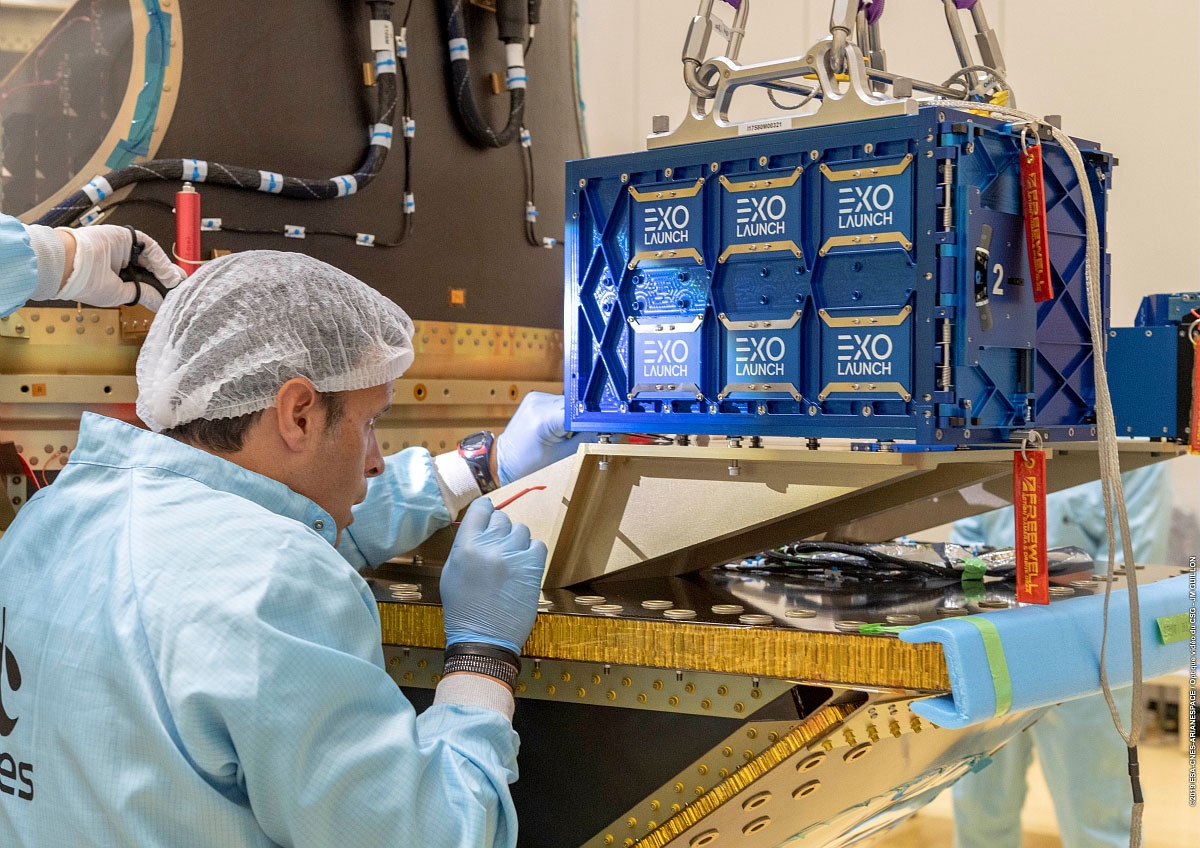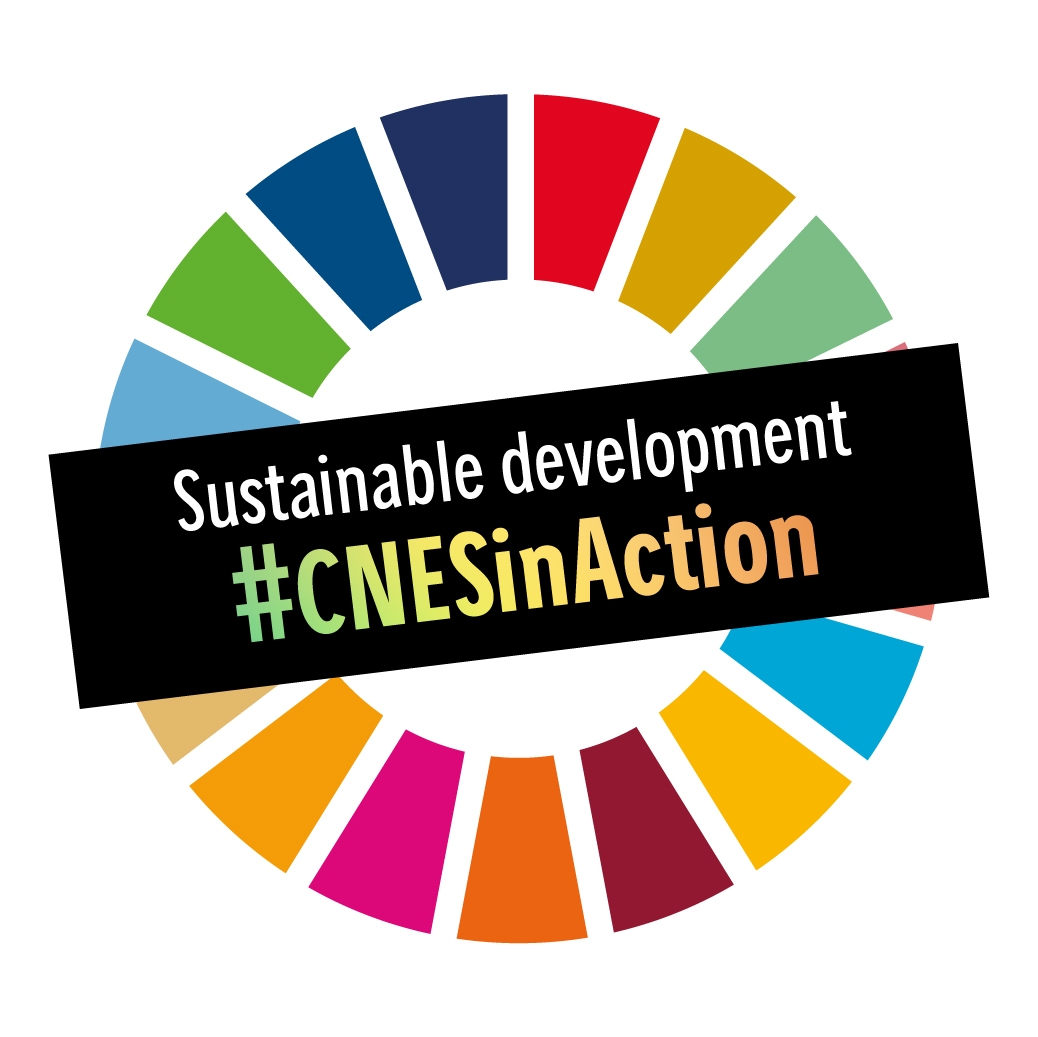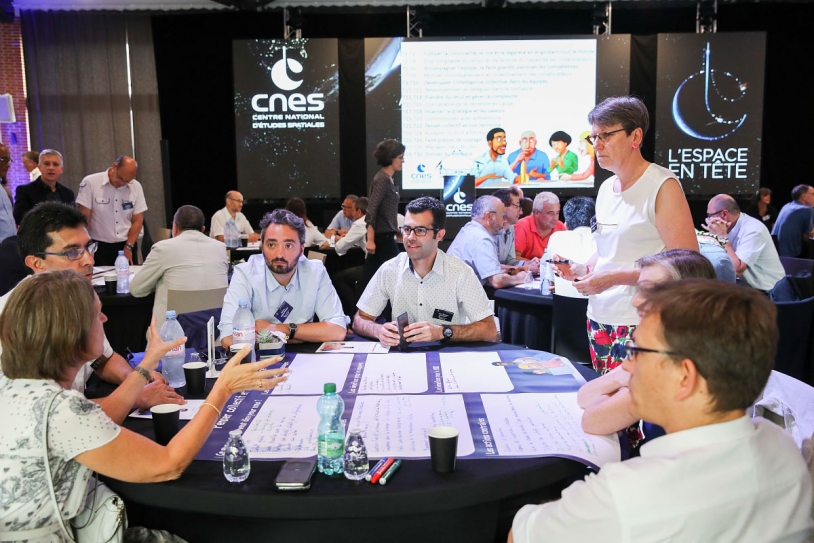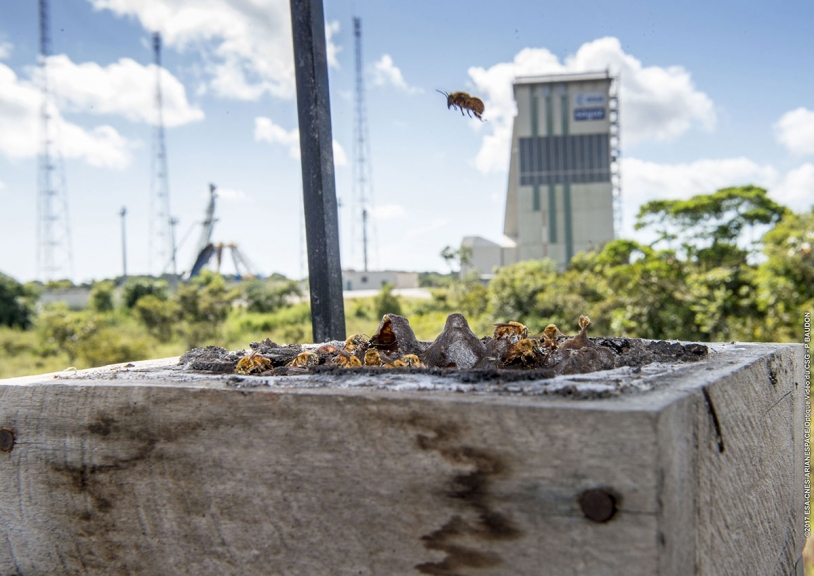Our 5 CSR commitments
Commitment #1: Being a socially responsible employer
Corporate social responsibility begins within the agency, through a human resources policy geared towards ensuring well-being at work, personal satisfaction and exemplary governance.
As a responsible employer, CNES is committed to the health and safety of its employees, and to their well-being at work. Each individual’s work environment must provide the foundation for them to flourish and maintain the right work-life balance through good organization. Satisfaction is also ensured by encouraging career development through internal mobility and an enterprising training and skills policy.
Leading by example and ethical compliance
Using space to further education and promote STEM learning, CNES is working to achieve diversity and open up careers in space to people from all backgrounds. It is also pursuing a pro-active policy towards gender and pay equality between men and women, with the ambition of leading the way for the space sector as a whole.
CNES promotes exemplary governance founded on transparency, compliance with ethics standards consistent with the agency’s values, and close and permanent dialogue with employee representatives.
Being a socially responsible employer also means taking initiatives to enable employees to make a difference, for example by rounding up their pay to contribute to good causes close to their heart
Commitment #2: Making space protective and sustainable
CNES is committed to ensuring that space remains accessible, useable, useful and protective.
This aspect of our CSR strategy is central to everything CNES does. It covers management of space to advance knowledge and as a source of services vital to populations and human activities, in particular for safety, crisis prevention and management, the environment and quality of life. Through its programmes, CNES is striving to develop the resources required to access and operate independently in space for France and Europe, notably with launchers and space systems.
A common good to be preserved
Space protects us, but we also need to protect it. For space technologies to remain a sustainable resource for human development, their impacts must be controlled. In compliance with the French Space Operations Act (FSOA), CNES is working to curb and eliminate the debris polluting space and endangering current and future objects in orbit.
Commitment #3: Creating shared value from space
Space must drive a virtuous economic cycle that benefits all while addressing environmental and social issues.
CNES is committed to increasing the positive impacts of space in support of sustainable growth. Creating shared value means helping firms of all sizes to develop their business by spinning off technologies from space research into all sectors of the economy and society. The agency also aims to support the French space ecosystem’s participation in major European and international programmes.
Balanced growth
Working to boost competitiveness in this way offers an opportunity to craft a virtuous response to sustainable development challenges by factoring economic, social and environmental issues into our growth model. For example, this is achieved through a socially responsible procurement policy encouraging job creation, workplace insertion and education. It also involves seeking new partnerships to attain international sustainable development goals.

Commitment #4: Reducing our environmental footprint
CNES is mobilizing all its stakeholders to assist France’s efforts to combat climate change, work towards a decarbonized world and protect biodiversity.
The agency is engaged in a broad array of actions to reduce its environmental footprint and embrace the ecological transition. Such actions include a big effort to save energy by limiting the impacts generated by what CNES’s activities and its field centre operations consume, through energy savings refurbishment of buildings and development of renewable energies.
Looking further ahead, CNES intends to pursue a low-carbon strategy geared towards achieving net zero greenhouse gas emissions by 2050, in line with France’s objectives. A comprehensive carbon inventory is a first vital step in this direction.
Eco-design and biodiversity
Another means to reduce the agency’s environmental footprint is the eco-design approach CNES is adopting for projects, involving all stakeholders at every point in the value chain. The use of methods like life-cycle analysis ensures that all impacts are taken into account.
CNES is also making the preservation of biodiversity a priority, as reflected by its accreditation as an Act4Nature organization committing it to precisely assess and factor biodiversity issues into how it develops space projects and manages its field centres.
Commitment #5: Supporting regional resilience
The space missions and applications developed at CNES have a positive and vital impact in supporting sustainable development in France’s regions.
Solutions relying on space-based Earth-observation, telecommunications and positioning technologies are providing regions and their populations with tools for land planning, sustainable resource management and environmental protection. CNES is directly involved through its programmes, its range of expertise and its place in the scientific ecosystem working in these fields.
Emergency response
Satellite data are of prime importance in mitigating natural disasters and managing emergency response, particularly when coming to the aid of populations. They are increasingly called upon to combat global warming and seek coping solutions. CNES is one of the leaders driving international cooperation in this domain, through initiatives like the International Charter Space and Major Disasters and the Space Climate Observatory (SCO).

Discover the 3 pillars of our environmental policy



